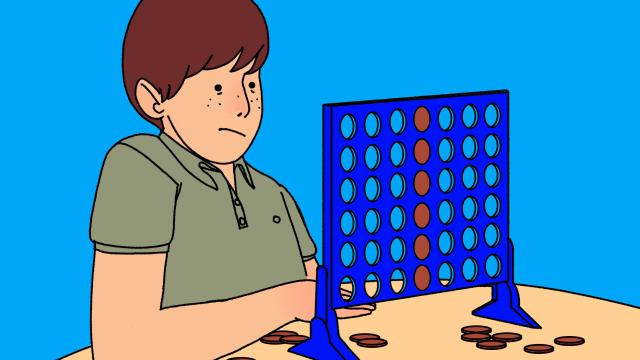When kids turn a simple trip to the bathroom into a marathon session, the question shouldn’t just be “What are they doing in there?” but “What aren’t they doing?”
It’s one my wife and I first confronted with our 7-year-old daughter two years ago. We noticed she was a little lethargic and spending extra time in the bathroom after school or during the weekend afternoons. Neither one of us made much of it until we went to do laundry and found a pile of little girl underwear attacked by nature’s brown crayon. It turns out part of her extended trips to our shared second-floor bathroom was to change into clean undies.
She was embarrassed to tell us what was going on. She could not remember the last time she had pooped, and refused to now, because it hurt too much to push. “It’s pokey,” she told us and refused to go to the bathroom. We called the pediatric gastroenterologist she sees for her Celiac disease, the autoimmune disorder triggered by the consumption of gluten. He recommended us putting her on a dosage of Miralax — a brand of polyethylene glycol laxative with stool softener — and orange juice similar to what one would consume before a colonoscopy.
She emptied out five hours later in what my wife described as the most disgusting display of bodily function she ever saw (an impressive feat as we’ve been together as a couple since the mid-1990s). Unfortunately, it was not the last time this would happen. About every nine months or so, my daughter would talk about “pokey poops” and cycle through tons of underwear.
Constipation is seldom thought about in the context of children, primarily because it’s overlooked as a problem. Celiac and an extremely picky diet contributes to my daughter’s issues, but constipation is not restricted to kids with medical conditions. In fact, it’s more common than you might think.
“Many bowel irregularities can be adjusted by ensuring adequate water intake and foods high in both soluble and insoluble fibre,” said Dr. Anna-Marie Simpson, a clinical nutritionist and chiropractor based in suburban Syracuse, N.Y. “In addition, a diet properly balanced with an assortment of fruits, vegetables, lean proteins and healthy fats is vital to a healthy GI system.”
What Causes Constipation?
Simpson’s list of potential causes begins at birth: Cesarean section babies miss out on the compression of the birth canal, which stimulates peristalsis in the baby’s intestines; babies born vaginally absorb the mother’s bacterial flora, which contributes to the child’s gut bacteria; breast-fed children get pre- and probiotics from their mother not found in formula.
(My daughter was born via emergency C-section and we began formula feeding during her second week for other reasons. The above information is not lost on us.)
She points to food as the biggest factor. Food does not contain the same levels of nutrition as in the past. She points to carrots, which have less protein, calcium and iron today than in the 1950s, according to a University of Texas study. Spinach, lauded for its rich vitamin and mineral content, has less vitamin A, B-1, B-2 and C today than it did before.
“The foods we consume not only lack key nutritional requirements needed for our bodies to grow, but they also create a ‘stress’ on our systems,” Simpson said. “These stresses have resulted in an exponential rise in bowel irregularities, such as constipation, in children, in addition to an increase in food sensitivities, intolerances and allergies.”
Ultimately, refusing to poop is a behavioural decision, according to Dr. Matthew Di Guglielmo from the gastroenterology/hepatology/nutrition division at Nemours/Alfred I. duPont Hospital for Children in Wilmington, Del.
“The behaviour is self-directed rather than resisting someone else’s efforts to treat or help,” Di Guglielmo said.
What Happens During Constipation?
Passing hard, dry or firm poop through the relatively small opening of the anus is painful on its own. Di Guglielmo says skin and urethral irritation from the buildup can compound matters.
“Certain muscles are controlled voluntarily,” Di Guglielmo said. “When a child has worries or fears about a painful bowel movement, she or he can avoid this by basically refusing to relax or by using certain pelvic floor muscles and external anal sphincter muscles to keep the poop in.”
The colon stretches to hold accommodate, but encopresis, or faeces leakage, can occur. The hardened faeces acts like a big rock in the middle of a creek and fresh, softer poop flows around it, exiting the body.
Fixing the Problem
The short-term concern is clearing the blockage — but long-term resolution takes time. DiGuglielmo believes many children need maintenance medications, dietary changes and behavioural interventions to correct recurring constipation.
Simpson echoes this point.
“Speak with your health care provider regarding dosage, but an omega 3 is a good start, followed by a good prebiotic and probiotic,” she said. Digestive enzymes and other supplements can aid in healing.
Both Simpson and Di Guglielmo stress speaking with a pediatrician when constipation presents itself, but encourage getting a second opinion if warranted.
“People are content with what ‘Dr. Google’ suggests, but ask your healthcare provider questions,” Simpson said. “Trust your instincts and seek out other opinions.”
Not everyone needs to consult a specialist, but if the pediatrician’s response to recurring or persistent constipation is “it will pass with time,” or “he/she will outgrow it,” they should consider a second opinion.
“Constipation is very prevalent and chronic constipation is often underdiagnosed and will not just go away in most, if not all, children,” Di Guglielmo said.

Comments
3 responses to “What To Do When Your Kid Can’t Poop ”
How ridiculous. Obviously not enough fibre in the diet. All animal foods have zero fibre. Eat more fruits & vegies. It’s that simple.
I’d be more concerned if your kid thinks that’s how you play Connect 4.
So in 2058 when your daughter become president of the reformed UN someone will find this article and she will be known as president Pokey Poops